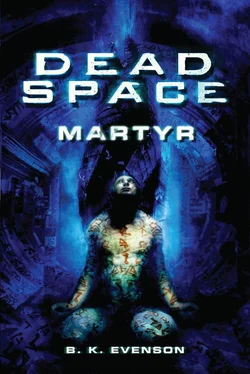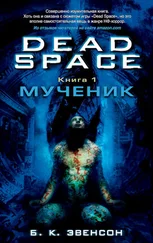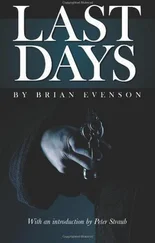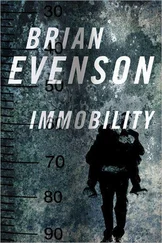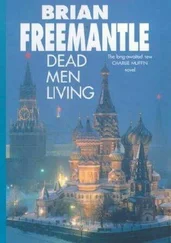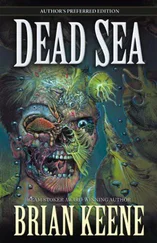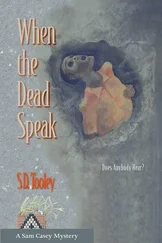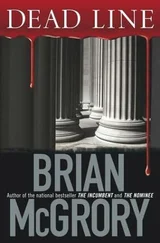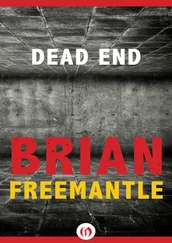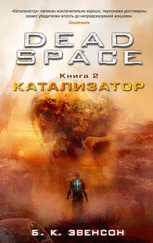“One other thing,” said Stevens. “The dead talk to some about unity, others about a ticking clock. What does this refer to? How does it relate to Convergence? Is the Marker awakening now to punish us for not making the most of our time here?”
“I don’t know,” said Altman. “It may be something less threatening, but I think it might be more. The dead act as though we have been facing a deadline. A deadline that we have evidently crossed. Convergence is talked about as starting over, but I don’t know that it’s likely to be a fresh start for us. Maybe it’ll just be a fresh start for the Marker, or whatever controls it. Maybe Convergence means wiping us out to start some new cycle, some new phase of whatever strange process we seem to be a part of.”
“If you’re right,” said Stevens, “the human race is on the brink of extinction. Either way, this Convergence represents the end of life as we know it.”
“Yes,” said Altman.
“So what do we do?”
“It should be stopped,” Altman said. “But I don’t know how. Now that it’s active, I don’t think it would help to simply sink the Marker again. We have to satisfy it enough to make it fall silent and leave us alone for a while, but not enough to move completely forward into Convergence. I don’t know what else to do but try to keep understanding what it’s saying to us before it’s too late. Maybe once we understand what it’s saying, we can figure out how to talk to it.”
“But you may be wrong,” said Stevens. “The Marker may actually be promising us eternal life.”
Altman nodded. “I may be wrong,” he said. “But I don’t think I am. You told me yourself: suicides are up, violent crimes are up. Some people’s headaches are so bad that they try to stop them by banging their heads against the wall until it cracks open. All the infirmary beds are filled and there are still people screaming and with nowhere to go. Once respectable scientists are painting their walls with their own shit. Does that sound like eternal life to you?”
Stevens sighed. “It could be just an intermediate stage. Do you know Pascal’s wager?” he asked.
“Who’s what?” asked Altman.
“Blaise Pascal,” said Stevens. “Seventeenth-century philosopher. Mostly forgotten now, though one of the first ships destroyed in the moon skirmishes was named after him. His wager argues that since the existence of God cannot be determined through reason, an individual should live as if He did exist since he has very little to lose if God does not exist and everything to gain if He does.”
“What does that have to do with—”
“I’m getting to that,” said Stevens. “I can either believe what you’re telling me or I can believe that the Marker has our best interest at heart. If I believe what you’re telling me, then that means that most likely humanity is a lost cause anyway and I’ll spend my final days beating my head out over a problem that can’t be solved. If I believe the Marker has our best interest at heart, then I move forward full of hope, toward my own salvation.”
“Oh my God, you’ve become a true believer,” said Altman.
“Why else do you think I convinced Markoff to have you released? I have to wish you the best of luck,” said Stevens. “If you’re right and I’m wrong, I hope you can figure it out and save all of us. If you’re wrong and I’m right, then I have everything to gain by believing.”
“That’s not how belief works,” said Altman. “You can’t just decide to believe.”
“Apparently, you can’t,” said Stevens. “But I can. I hope you’re wrong.” Altman watched him reach out and cut the link.
Stevens’s attitude, Altman realized, was likely be shared by many, though very few would be as rational-sounding or as coherent in the way they managed to deliberately shut their eyes to the danger. By raising it with his colleagues, he risked their resentment and, even, their attacks. Even if they believed him, it might well mean that panic and fear and depression might compromise their ability to work.
No, he was going to have to make a little gambit of his own: Altman’s wager. He’d wager that he could pretend to proceed as if he agreed, pretend to move forward with fulfilling the Marker ’s will, and then at the last minute, once he’d learned enough to defeat it, turn things around. If he won, then life would probably continue on roughly as it was. If he lost, then he’d probably be dead, and maybe everyone else would be as well.
Not good odds, but they were the only odds he had.
It was Showalter who made the initial breakthrough by suggesting a possible function for the Marker. The symbols, he theorized, were mathematical codes that symbolized DNA. The Marker itself was a representation of a DNA sequence.
The scientists set about decoding the sequence. Another scientist, a radio astronomist named Grote Guthe, made the next breakthrough, suggesting that the Marker ’s signal could be read as a transmission of a sequence of genetic code. Field made sure that Altman heard about both.
Showalter’s team sequenced the Marker itself, and came up with a genetic profile that was, so he told Altman, remarkably similar to that of humans.
“So something like humans?” said Altman.
“Maybe,” said Showalter. “Maybe even something exactly like humans. I think that the Marker has the DNA code for our ancestors.”
“So it records our genetic code,” said Altman. “So what?”
“Not just records,” said Showalter. “We think the pulse transmits it as well, deliberately changing genetic structure slightly in existing human organisms. It may, in fact, have been the beginning of human life.”
Altman didn’t know what to say. It was staggering to think that human life had neither evolved naturally nor been a gift from God but was, instead, based on the Marker.
“But why would it be rebroadcasting our genetic code?” asked Altman. “We’ve already evolved. What would be the point of that?”
“Have you talked to Grote Guthe?” asked Showalter. “He’s hit a snag. For God’s sake, go talk to Grote.”
And so he did. The German scientist was not what he expected he would be; he was small and very thin, and had a skin condition that had left him hairless. He looked harmless, almost helpless. He seemed to be expecting Altman.
“Yes,” he said, “Herr Doktor Field has told me about you. You are one of us, yes?” Altman neither nodded nor shook his head, but Guthe went on. “You want to know about the pulse,” he said. “Whether my team has decoded the pulse. Perhaps Herr Doktor Shovalter has said something, yes?”
“Yes,” said Altman.
“We have decoded the pulse, perhaps. But we have struck a complication.”
“What’s the complication?”
“My team has decoded the signal and we think it is decoded correctly. We understand it to be a code and we understand what that code is. Herr Doktor Shovalter thinks he has decoded the signal and he, too, thinks it is decoded correctly. The complication is that we have different answers. For him it is a code that is a step upon the sequence to human life. For me it is something else entirely, not correlatable to a known species. I am making a synthetic version of mine now, to get a closer look at it.”
“Perhaps one of you is wrong,” said Altman.
“Perhaps,” said Guthe. “Or perhaps the pulse signal is transmitting a different code than is recorded on the Marker.” He leaned forward and gave Altman a steady look. “I must say something to you,” he said. “I am a believer, you must not doubt my belief. But I am also a scientist. I have looked carefully at Herr Doktor Shovalter’s calculations and I have looked carefully at my own. Our calculations are correct. If the Marker was the beginning of human life, then it has no need to be broadcasting this now. And yet it is communicating a pulse, one with an unfamiliar genetic code. Perhaps it is communicating a pulse, but perhaps it is a flawed pulse with a flawed genetic code. Perhaps this Marker has begun a process of deterioration.”
Читать дальше
